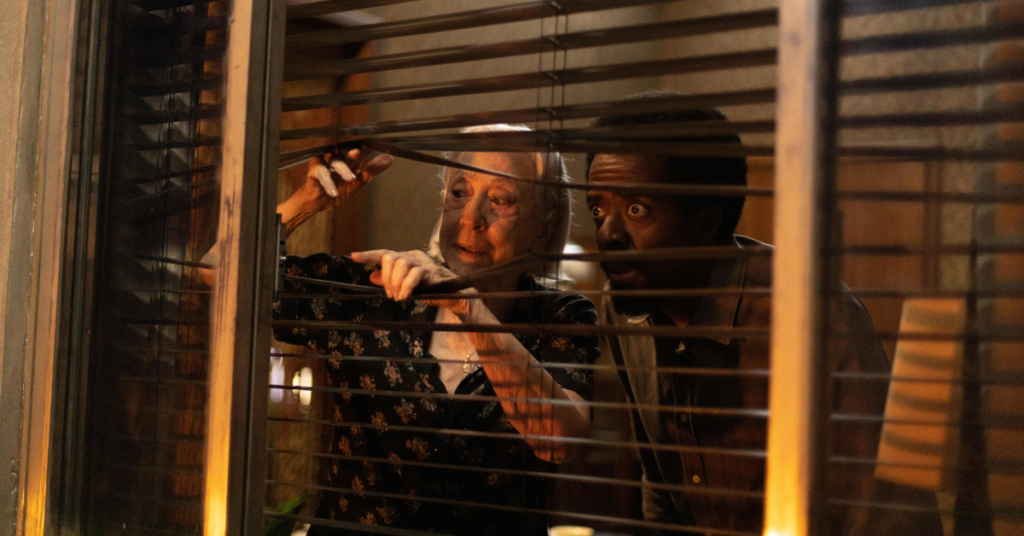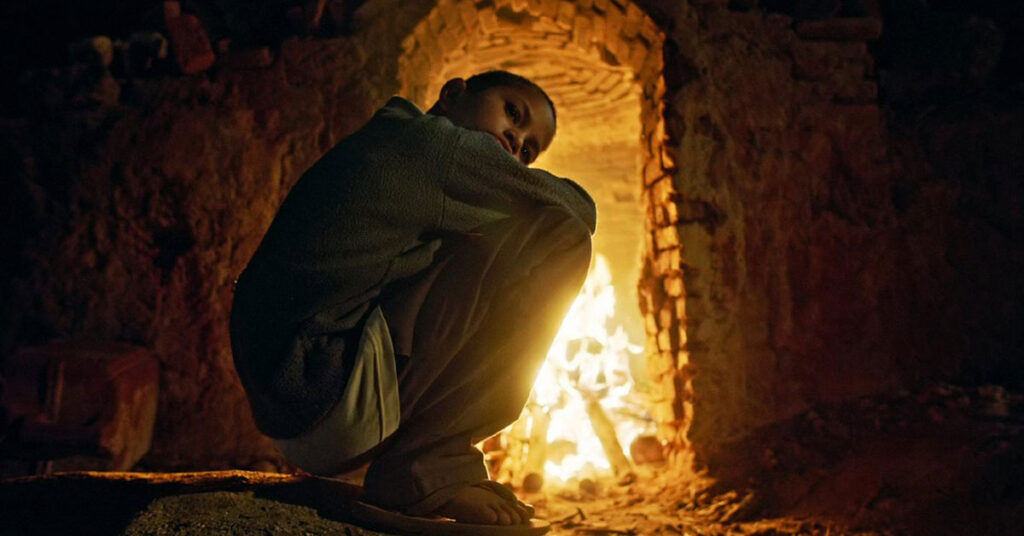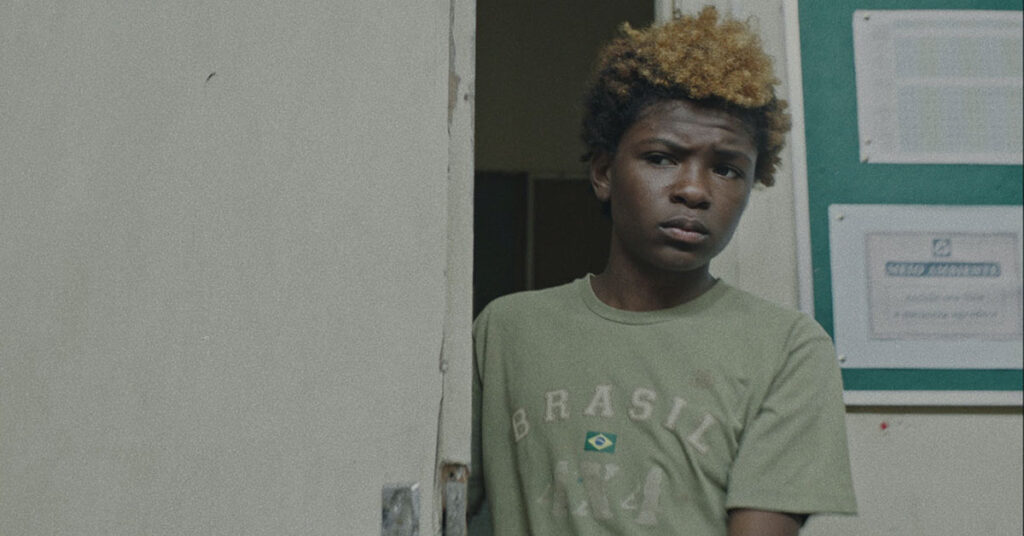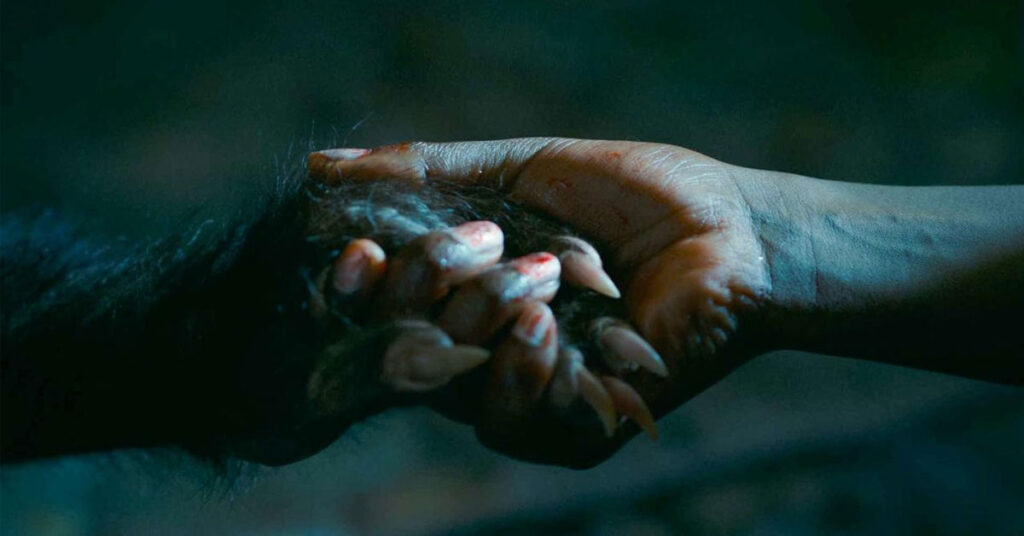Why we recommend it
The true story of an 80-year-old woman who takes it upon herself to deal with the violence seen through her window is presented with an extraordinary performance by Fernanda Montenegro, who gives us the opportunity to experience artistic excellence from a lifetime dedicated to acting. This is the actress’s second-to-last film before her announced retirement.
Review
Sometimes all it takes is a strong presence on screen for a whole movie to build up around it. This is the thought that remains after a screening of Vitória, Andrucha Waddington’s new film and Fernanda Montenegro’s second-to-last film before her recently announced retirement. Based on the true story of Joana Zeferino Paz, the film was shot before her death in 2023, when she was still living anonymously for security reasons, under the name Dona Vitória. As such, her real name and appearance were not disclosed before then. At its conclusion, the film makes a point of including this information in text – as is customary in biographical dramas. This serves to elevate the real figure of Dona Joana, but also to justify the production’s accidental whitewashing by casting a white actress in the role of an originally black character.
As such, Fernanda Montenegro plays Nina, almost a parallel version of Joana, created from the adaptation. But the rest of the facts are still brought to the screen faithfully, presenting us with the story of the elderly woman who, after living for decades in a small apartment in Copacabana near Ladeira dos Tabajaras, decided to do something about the crime and violence that plagued her neighborhood. Unable to count on immediate action from the police, Dona Nina decided to save her money and buy a camcorder. From her living room window, she recorded striking images of the daily life of drug dealers in a favela in Rio de Janeiro, recording evidence of various crimes, including murder, and the involvement of police officers. So, at the same time as she triggers an investigation capable of bringing down drug gang leaders and corrupt police officers, she becomes a target for these same criminals.
Fernanda’s performance is as excellent as ever, the result of 80 years of a brilliant career dedicated to acting. But in addition, she is completely at ease in the role, which, while allowing her to take advantage of the frailties of old age, also portrays a simple and modest life, filled with small revolts and small comforts. It’s the kind of role that’s a walk in the park for her. It’s almost possible to draw parallels between Nina and Romana, from They Don’t Wear Black Tie, or Dora, from Central Station. The fact that she is being directed by her son-in-law also helps. The comfort zone can bring advantages.
Andrucha’s directing is adequate, presenting us with a concrete landscape, made up of visual and sound stimuli. When the movie begins, we hear the city before we see it. An audiovisual construction that reveals a Rio de Janeiro where Nina has learned to navigate and survive over the years. The camera makes us companions of the old lady as she walks through those streets and alleys, confronting the rudeness, truculence and etharism of a society that casually underestimates her. All this allows Vitoria, without any great cinematographic feats, to provide at least a few memorable moments, which have already been born classics – without wanting to give spoilers, a spit and a massage provoked wonderful reactions from the audience at the screening I attended.
But even though it’s true that the movie is built around Fernanda’s performance, the rest of the cast is just as strong. Alan Rocha, playing the reporter Fábio Gusmão, brings the weight of the situation Dona Nina has gotten herself into, as well as his concern and admiration for her. Linn da Quebrada creates a figure who is both unsubmissive and appeasing in Bibiana, Nina’s neighbor. And the young Thawan Lucas gives so many layers to the tragic figure of Marcinho, a boy from the favela who is both a victim and a cog in organized crime (the possibility of saving him is another driving force in Nina’s journey). Vitória, then, is another perfect example of the collective nature of cinema. Fernanda Montenegro may be its greatest attraction and main resource, but it is still a film whose many parts work in harmony to form a whole.

Bruno Weber has a degree in Broadcasting from the Cásper Líbero Foundation and in Audiovisual Production from ETEC Roberto Marinho, and works as a comic artist and film critic. His work can be seen on social media, such as the series ”Unremembered Scenes from Forgotten Films”, autobiographical comic strips and various comics. He also writes film reviews for blogs such as Cinematografia Queer and the Peliplat platform, for which he covered the 48th São Paulo International Film Festival.




